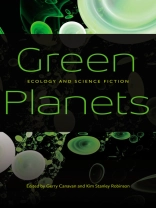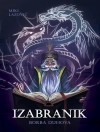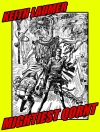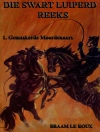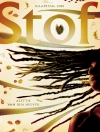Contemporary visions of the future have been shaped by hopes and fears about the effects of human technology and global capitalism on the natural world. In an era of climate change, mass extinction, and oil shortage, such visions have become increasingly catastrophic, even apocalyptic. Exploring the close relationship between science fiction, ecology, and environmentalism, the essays in Green Planets consider how science fiction writers have been working through this crisis. Beginning with H. G. Wells and passing through major twentieth-century writers like Ursula K. Le Guin, Stanislaw Lem, and Thomas Disch to contemporary authors like Margaret Atwood, China Miéville, and Paolo Bacigalupi—as well as recent blockbuster films like Avatar and District 9—the essays in Green Planets consider the important place for science fiction in a culture that now seems to have a very uncertain future. The book includes an extended interview with Kim Stanley Robinson and an annotated list for further exploration of ‘ecological SF’ and related works of fiction, nonfiction, films, television, comics, children’s cartoons, anime, video games, music, and more.
Contributors include Christina Alt, Brent Bellamy, Sabine Höhler, Adeline Johns-Putra, Melody Jue, Rob Latham, Andrew Milner, Timothy Morton, Eric C. Otto, Michael Page, Christopher Palmer, Gib Prettyman, Elzette Steenkamp, Imre Szeman.
สารบัญ
Preface
Introduction: If This Goes On — Gerry Canavan
PART 1 — Arcadias and New Jerusalems
Extinction, Extermination, and the Ecological Optimism of H.G. Wells —Christina Alt
Evolution and Apocalypse in the Golden Age — Michael page
Daoism, Ecology, and World Reduction in Le Guin’s Utopian Fictions — Gib Prettyman
Biotic Invasions: Ecological Imperialism in New Wave Science Fiction — Rob Latham
PART 2 — Brave New Worlds and Lands of the Flies
‘The Real Problem of a Spaceship Is Its People’: Spaceship Earth as Ecological Science Fiction — Sabine Höhler
The Sea and Eternal Summer: An Australian Apocalypse — Andrew Milner
Care, Gender, and the Climate-Changed Future: Maggie Gee’s The Ice People — Adeline Johns-Putra
Future Ecologies, Current Crisis: Ecological Concern in South African Speculative Fiction — Elzette Steenkamp
Ordinary Catastrophes: Paradoxes and Problems in Some Recent Post-Apocalypse Fictions — Christopher Palmer
PART 3 — Quiet Earths, Junk Cities, and the Cultures of the Afternoon
‘The Rain Feels New’: Ecotopian Strategies in the Short Fiction of Paolo Bacigalupi — Eric C. Otto
Life after People: Science Faction and Ecological Futures — Brent Bellamy and Imre Szeman
Pandora’s Box: Avatar, Ecology, Thought — Timothy Morton
Churning Up the Depths: Nonhuman Ecologies of Metaphor in Solaris and ‘Oceanic’: — Melody Jue
Afterword: Still, I’m Reluctant to Call This Pessimism — Gerry Canavan and Kim Stanley Robinson
Of Further Interest
About the Contributors
Index
เกี่ยวกับผู้แต่ง
Kim Stanley Robinson is an American writer of science fiction. He has published nineteen novels and numerous short stories but is best known for his Mars trilogy. Robinson has won many awards, including the Hugo Award for Best Novel, the Nebula Award for Best Novel, and the World Fantasy Award.
